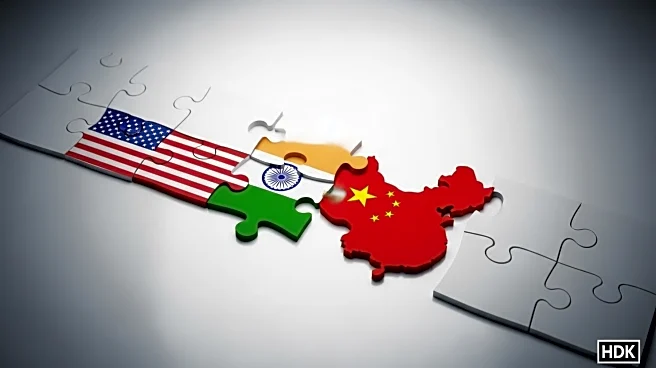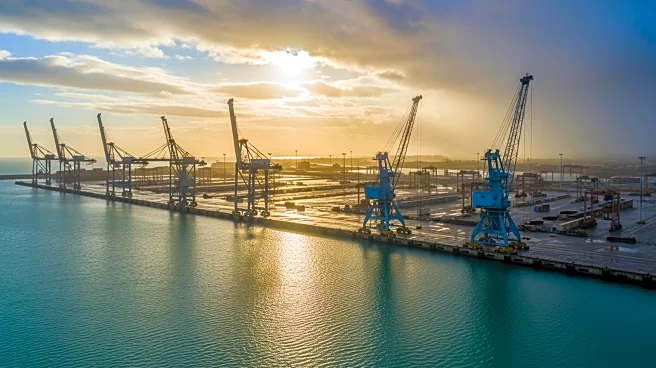What is the story about?
What's Happening?
The United States has increased tariffs on Indian goods, doubling the rate to 50% in August. This move is part of President Trump's broader trade strategy, which aims to pressure countries economically. However, the tariffs on India are expected to negatively impact the region's economic growth, with the World Bank projecting a decrease in South Asia's GDP growth from 6.6% in 2025 to 5.8% in 2026. Indian Prime Minister Narendra Modi's economic adviser estimates that these tariffs will reduce India's growth rate by half a percentage point. The tariffs were imposed in response to India's importation of Russian oil, despite China being a larger importer of the same product.
Why It's Important?
The tariffs on India could inadvertently strengthen China's position in Asia. Economic growth in South Asia is crucial for maintaining a balance of power in the region, which includes treaty allies like Japan and the Philippines. A weakened South Asia could give China more freedom to exert its influence along its eastern coast, potentially leading to increased regional tensions. The U.S. aims to negotiate a comprehensive trade deal with China, but the current tariff strategy may undermine efforts to counter China's economic and military expansion.
What's Next?
The U.S. administration may need to reassess its tariff strategy to avoid unintended consequences that could bolster China's regional dominance. Diplomatic efforts to engage with South Asian countries and support their economic growth could be crucial in maintaining a strategic balance in Asia. Additionally, the upcoming Asia-Pacific Economic Cooperation summit may provide an opportunity for President Trump to discuss trade issues directly with Chinese President Xi Jinping.
Beyond the Headlines
The imposition of tariffs on India highlights the complex interplay between economic policy and geopolitical strategy. While tariffs are intended to protect U.S. interests, they can have far-reaching implications for international relations and regional stability. The situation underscores the importance of considering the broader impact of economic decisions on global power dynamics.















